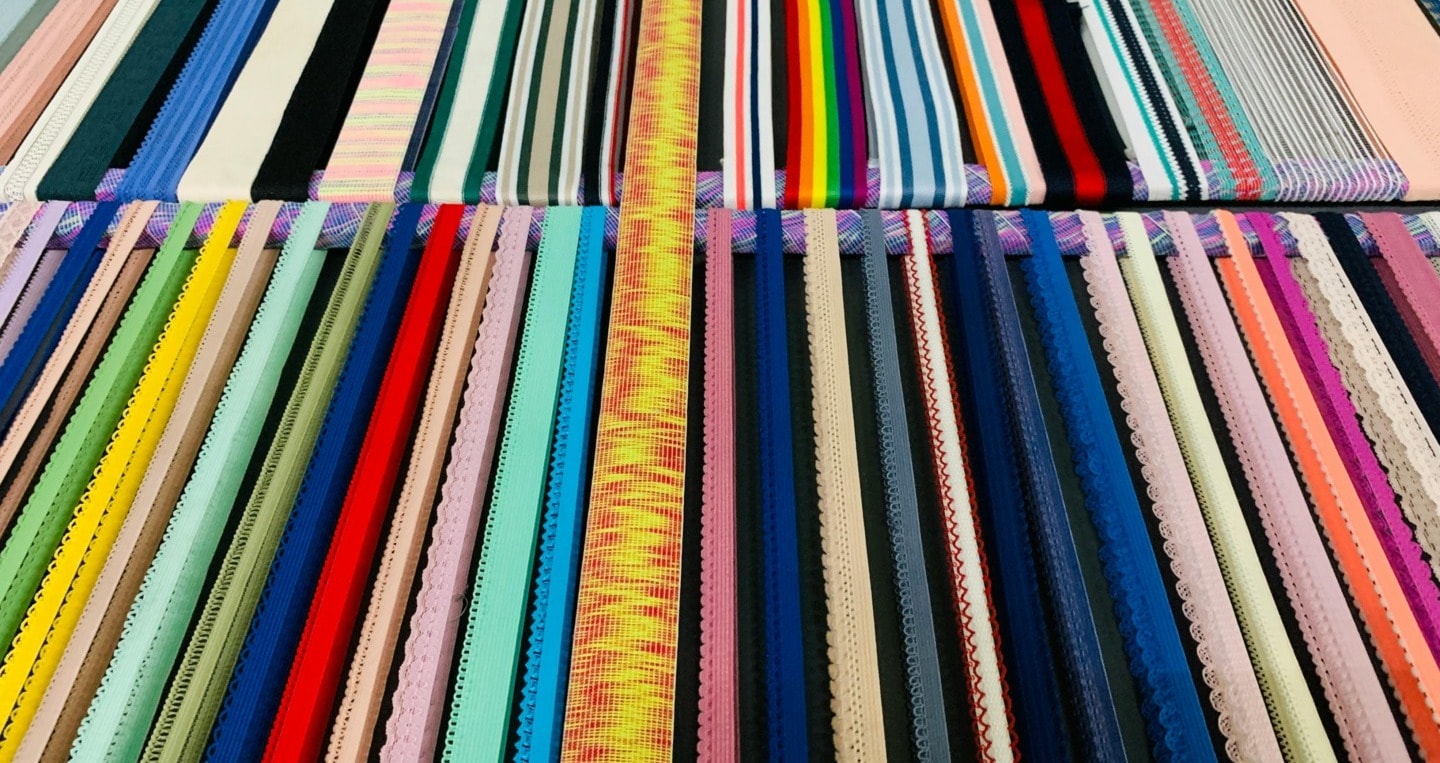Claire Swift is many things: designer, innovator, educator, activist. More specifically, she is the Director of Social Responsibility at London College of Fashion where she is busy inspiring those around her and within the wider community. With the philosophy that fashion is unstoppable in its power to shape peoples’ lives, she has been a leading voice in the various projects developed under LCF’S Better Lives agenda.
Throughout her career, Claire Swift has worked to support a range of people, from fashion students to female offenders. In doing so, she has contributed to at least five Sustainable Development Goals: no poverty (SDG 1), quality education (SDG 4), gender equality (SDG 5), reduced inequalities (SDG 10), and responsible consumption and production (SDG 12).
In our interview she discusses the different paths she has taken in her life, as well as the important role that fashion can play in making our society a more sustainable one.
 In the photo: Collection from designer Bethany Williams and the women of San Patrignano rehabilitation facility
In the photo: Collection from designer Bethany Williams and the women of San Patrignano rehabilitation facility
How did you come to work on social responsibility within the fashion industry?
Claire Swift: My life and career has been dominated by fashion from an early age. I would describe myself as a ‘maker-designer’ as I found that ‘making’ was, and still is, for me the most enjoyable aspect of designing. The explosion of the 80’s was such an exciting and vibrant time – I feel privileged to have been part of such an era. Living through key moments in fashion history – the 70’s, 80’s and 90’s – were fun, as was frivolously playing with image and identity and being part of a community.
My decision to leave the industry and concentrate on teaching at London College of Fashion, University of the Arts London, defined another phase of my career. During this period of time, I enjoyed contributing towards the success of the Womenswear Programme that has produced some incredibly talented young people, some of whom have become recognised names, influencers and activists within the fashion industry.
The most significant moment of my career was becoming the Director of Social Responsibility at LCF, my current role. The work that we have developed as a team comes under the college’s Better Lives agenda. We co-create innovative and dynamic projects instigating a dialogue between staff, students, women offenders and the wider community, using fashion concepts, skills and outcomes to create positive change, redefining its role within today’s society.
What does social responsibility mean to you and what role can fashion play?
CS: Fashion is a great connector. It permeates all aspects of our culture, business and society. We cannot underestimate the influence that it has because it is so intrinsically intertwined with our everyday lives. And it is precisely fashion’s ability to connect to a diverse audience that defines it as a powerful tool for Social Responsibility here at LCF.
You’ve done a lot of work with female offenders. What inspired this?
CS: My first experience of working with women in prison was in 2010. I realised then how remarkable fashion can be: it breaks down barriers, it encourages extraordinary talent and creativity and can contribute towards a sense of well-being. This inspired me to continue to work with women in prison, to provide real opportunities, to build their self-confidence and enable hope for a future for themselves and their families.
What are you working on at the moment?
CS: Our projects involve everyone who wishes to participate – staff, students, women offenders, community participants. We embark on a journey together and we create change together; everyone is part of the process and everyone shares in its success.
‘Making for Change’ is a fully-equipped fashion training and CMT manufacturing unit within a women’s prison. Established by the Ministry of Justice and London College of Fashion in 2014, the project aims to increase well-being and reduce reoffending rates amongst participants by equipping them with technical knowledge, professional manufacturing skills and qualifications within a supportive environment. This helps enable them to become employable upon release and in so doing gives them the confidence to change their futures.
In addition, the project strives to support new designers and entrepreneurs and to develop unique partnerships with universities, charities and the social enterprise sector. We also promote the “Made in the UK” campaign through the development of high-quality products.
 In the photo: LCF staff and students march with banner representing the women at HMP Downview
In the photo: LCF staff and students march with banner representing the women at HMP Downview
Another one of our projects is ‘Processions’. To commemorate the Centenary of the Representation of the People’s Act, in collaboration with Historic England, artist Lucy Orta, LCF staff and students worked with inmates at HMP Downview women’s prison as part of Artichoke’s nationwide mass-participation art project. Over a period of three months they delivered a programme of educational and practical workshops to produce seven banner art-pieces that represented the women at HMP Downview in a procession in London, Cardiff, Edinburgh and Belfast on 10 June 2018.
Finally, we are working on Conscious Contemporary Tailoring. Supported by the Zegna Foundation and facilitated by the social responsibility department at LCF, this project brings communities together: the women of the weaving department at San Patrignano, the women of LCF’s Making for Change project and BA Menswear students. San Patrignano is a community that focuses on the rehabilitation of young people affected by drug issues. As an alternative to a prison sentence, the young people actively engage with their own transformation through education and learning to be specialists in a craft skill.
Working with young people, what legacy do you want Better Lives to leave for future generations?
CS: London College of Fashion’s ethos of ‘Better Lives’ first emerged over ten years ago as a result of Head of College, Professor Frances Corner’s vision to elevate fashion as a force for positive change. It is our guiding principle, and now is the time for fashion to extend and expand its influence, to counter its traditional stereotype as a lightweight subject. LCF students represent the future of the fashion industry and they have the power to change the course of the industry from within.
Many thanks to Claire Swift, Director of Social Responsibility, London College of Fashion, UAL.














